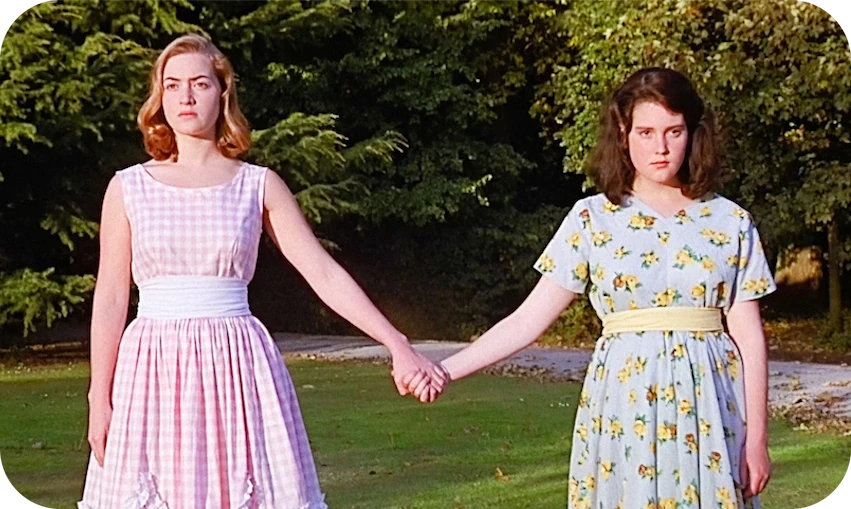Coalition aligned on push to attract foreign investment
But can Winston Peters win his cabinet colleagues over with his 'future fund'?
Mōrena, and welcome to The Bulletin for Tuesday, October 15.
In today’s edition: Human rights commissioners weren’t recommended by hiring panel, where and how home-educated students learn, and there is major public support for buying rail-enabled ferries. But first, the coalition wants to make it easier to attract wealthy foreign investors to New Zealand.
The push for foreign investment
We talked briefly yesterday about Winston Peters’ plans for a $100bn “future fund” – a ring-fenced infrastructure initiative to be used for projects "in our national interest” – which it appears he intends to campaign on at the next election rather. It’s a bold move, and one that appears to show a softening stance on his party’s view on seeking foreign investment.
The bigger picture is that while Peters is arguing for his long term policy, the government he’s part of is making smaller waves in the same area. The prime minister, as we’ll talk about below, is strongly behind his government’s plans for a new National Infrastructure Agency. And in an announcement made during the typical unfriendly news slot of Saturday morning, associate finance minister David Seymour revealed that foreign investment rules will be loosened, as explained by The Post’s Tom Pullar-Strecker. The move will effectively flip the existing burden of proof that requires overseas investors to prove their investment will benefit the country, with Seymour saying “the new starting point is that investment can proceed unless there is an identified risk to New Zealand’s interests”.
It’s no surprise
The weekend’s announcement had been foreshadowed for some time. Back in May, the OECD noted our restrictive foreign investment rules as barriers to increasing productivity, ranking New Zealand at 38th (out of 38 countries) when it came to openness for investment. At the time, reported The Post, David Seymour indicated that the government had gone as far as it could under the existing legal framework in allowing for more investment and signalled that he was drafting up new legislation. “I'm working as rapidly as possible to send the message to the world that New Zealand actually wants people to come in and invest here,” he said. What we have now is just an initial outline of where the government intends to go, and further detail will likely emerge next year.
Beyond a global assessment of our situation, it has been widely observed that New Zealand has an infrastructure deficit. In a statement, Infrastructure NZ welcomed the shift in our overseas investment rules, saying it was necessary to “supercharge New Zealand’s infrastructure uplift”.
Coalition in alignment (almost)
With all three parties pushing for broadly the same thing, the invitation to foreign investors appears wide open. Writing for BusinessDesk (paywalled), Pattrick Smellie said the significance of Winston Peters’ new proposal, which would involve changes to the tax system to attract foreign investment, was less about what he said and more that he said anything at all. “Hostility to foreign investment, quite simply, has always been part of NZ First’s DNA,” wrote Smellie. As he notes, while the announcements by Peters and Seymour were not directly connected, “the coalition’s message is undoubtedly aligned”.
In a recent interview with Smellie’s colleague Dileepa Fonseka (paywalled), Christopher Luxon said that New Zealand needed to make it easier for foreigners to invest, contrasting us with one of his favourite small nations. “At the moment we’ve sort of got this ‘you’re lucky to invest in New Zealand’ and yet in Ireland it’s ‘thank you for coming all this way to spend your money with us’,” the prime minister told BusinessDesk.
In all likelihood, Peters will be taking his policy with him into the 2026 election campaign, though RNZ reported he was confident of getting buy in from his coalition partners. He told Newstalk ZB’s Mike Hosking he hadn’t seen the government’s own announcement on Saturday and “couldn’t quite follow” what Seymour had said. At his weekly post-cabinet press conference yesterday evening, Christopher Luxon confirmed Peters’ future fund idea had not been discussed and parties were “free” to take their own ideas to the next election. However, on the general principle of foreign investment, Luxon reiterated: “I sit down with investors regularly offshore and say what’s the ‘good the bad and the ugly’ of investing in New Zealand, and the messages are pretty simple: it’s too hard to get anything done [and] it takes too long…
A softening on foreign home ownership?
Meanwhile, in that same interview with Mike Hosking, Peters appeared willing to loosen his stance on foreign ownership of property – something that he was reportedly unprepared to budge on during coalition talks. But it would take more than someone with a “lousy $20m” to make that happens, Peters told Hosking, and wasn’t about allowing people to buy up and then abandon homes in “leafy suburbs” like Remuera. “If you’ve got the right investor here, who’s going to argue about them buying a home,” said Peters. In an interview with Bloomberg earlier in the year, the deputy prime minister similarly suggested that he would be open to relaxing the rules for ultra-wealthy foreigners that were prepared to invest more broadly in the economy.
Meanwhile, we have a new political poll that could fuel Peters and his policy push. Last night’s TVNZ poll showed steady support for the coalition, though New Zealand First was heading dangerously close to the 5% threshold at which they would be turfed back out of parliament. Writing for the Herald, Thomas Coughlan suggested that was the figure that would worry the government the most – “a plausible worst-case scenario for the coalition would be for NZ First to slip ever so slightly, crashing out of parliament and taking 4% of the vote with it”.
Join our community of supporters
"I like that it feels like chipping in for a good cause, rather than paying for a subscription." – Kimberley, Spinoff member.
Whether you read, listen to or watch our mahi, you can support us to do more by donating today or signing up to become a member. Already a member? Ka nui te mihi, your support means the world to us.
Human rights commissioners weren’t recommended by hiring panel
New leadership hires at the Human Rights Commission were contrary to recommendations made by the independent panel tasked with leading the process, The Spinoff’s Madeleine Chapman exclusively reports. Stephen Rainbow is due to take up the position of chief human rights commissioner next month alongside Gail Pacheco as equal employment opportunities commissioner and Melissa Derby as race relations commissioner.
As Chapman explains, the appointments of Rainbow and Derby were controversial, largely due to Rainbow’s vocal support of Israel and both Rainbow and Derby’s history of anti-trans views. Documents released under the Official Information Act reveal that neither Rainbow nor Derby being put forward as shortlisted candidates by the independent panel tasked with conducting the “transparent process”. One document specifically lists Rainbow as “not recommended” by the panel.
Meanwhile, in other news, the government has finally filled the role of public service commissioner, with Brian Roche due to take up the position for a shorter than typical tenure of just under three years.
Cover Story: Where and how home-educated students learn
For the latest in our Cover Story series on The Spinoff, Gabi Lardies meets Rachel Guidera, a mother who has been home educating her son Felix for four years. As Lardies explains, Felix is one of over 10,000 students who are being educated at home in New Zealand – just over 1% of pupils.
In New Zealand, parents can choose to home educate children aged between five and 16 years, but must first get approval from the Ministry of Education. Teacher-parents are eligible for an allowance, but it’s tiny: $796 a year for the first child, and less for subsequent children.
Guidera explains her decision to home educate Felix, saying that her son, who has autism, found it difficult to get along with others at his previous schools. But for many home educators like Guidera, a classroom is not something confined within four walls – it’s anywhere.
On Thursdays, you’ll find Felix at The Forest School in Hatfields Bay, Waiwera. His classmates are kids of all different ages, and their classroom is an area of native bush by the coast. It’s a free-range learning school that focuses on positive social and self-management skills and respectful relationships with the environment and people.
A new docuseries for The Spinoff, Home Education, follows six families and their many different learning places: a dahlia farm, the forest, a house bus, the beach, a farm, and the local stream, to name just a few.
Join us for a one-night only live event
We’re huge fans of local television here at The Spinoff, and for one night only we want to celebrate some of our all-time faves. Join Alex Casey, Kura Forrester, Rhiannon McCall, Stewart Sowman-Lund and Lyric Waiwiri-Smith at Q Theatre on October 31 as we unearth some beloved TV gems and argue for their place in our history.
Click and Collect
There is major public support for buying rail-enabled ferries, according to a new poll.
The number of people who receive the Jobseeker Work Ready payment has increased by almost 12% in the past year.
Waikato Hospital has told nurses not to speak to patients in any language other than English.
For his latest Windbag column, The Spinoff’s Joel MacManus looks at the compelling drama around Wellington Airport and te Tiriti. Meanwhile, Nicola Willis says the government is keeping a watchful eye over the “not… very functional” Wellington Council.
March 15 terrorist’s sister to give evidence on gun ownership.
Auditor-general announces inquiry into Oranga Tamariki funding decisions.
Former Green MP Golriz Ghahraman appeals shoplifting convictions.
Alex Casey rewatches Heavenly Creatures three decades on. Pete Douglas listens to all 20 hours of Matt Heath's first week at Newstalk ZB and wonders if the commentator can save talkback radio. Gabi Lardies discovers the hot new hobby in Auckland: building robots and letting them fight each other. Here are all the new movies and TV on streaming services this week.
That’s it for this morning, thanks for reading. See you back here tomorrow.
Want to get in touch? Join the conversation in the Substack comments section below or via email at thebulletin@thespinoff.co.nz if you have any feedback on today’s top stories (or anything else in the news).
If you liked what you read today, share The Bulletin with friends, family and colleagues.














With the news the Government has gone against recommendations regarding appointments to the Human Rights Commission, one has to wonder if that is now the default process: flag issue > ask experts > do the opposite of what they advise/recommend. This is certainly bearing out in their actions!
The ‘Home Education’ series is gorgeous - thoughtful, delightful, carefully & sensitively made. Looking forward to the remaining episodes!